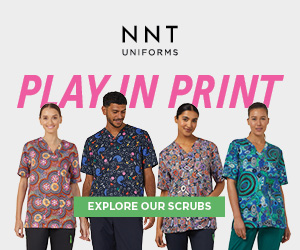A new public health campaign to improve pregnancy outcomes for First Nations mothers and their babies across the country has launched, with educational resources now available to midwives and nurses.
The Preterm Birth Prevention ‘See, Stop, Scan’ campaign aims to educate and empower First Nations mothers by promoting engagement between healthcare providers and pregnant Top End women.
The campaign features posters, DL flyers and information sheets for antenatal clinics and GP clinics here
Launched at the recent Australian College of Midwives NT Conference 2024, the campaign is an initiative of Menzies School of Health Research and the Australian Preterm Birth Prevention Alliance.
First Nations women in the Northern Territory experience some of the highest rates of preterm birth in the world, currently double that of non-Indigenous populations. Preterm birth (before 37 weeks of pregnancy) remains the single greatest cause of childhood death and disability in Australia.
Complex interactions between maternal and perinatal health outcomes and determinants of health are key factors that influence the poorer health outcomes experienced by First Nations mothers and babies, said Menzies Senior Research Fellow and Top End Alliance Lead, Dr Kiarna Brown.
“Despite significant successes in reducing the rates of preterm birth in a number of our states and territories, Aboriginal mothers still remain disproportionately affected by preterm birth – with rates twice that of the non-Aboriginal mothers in many jurisdictions,” she said.
The ‘See, Stop, Scan’ will highlight the role Aboriginal mothers and their healthcare workers can play in ensuring the healthy pregnancies.
Posters and information sheets offer the following advice:
- See: your midwife early to make sure both you and baby stay strong and healthy.
- Stop: smoking can cause harm to your baby, increasing the risk of being born too early or not growing properly.
- Scan: having a scan of your baby in the second trimester to provide very important information about you and your baby.
In yarning with women across the Top End, many reported that existing pregnancy education was often unrelatable and inaccessible due to language and cultural barriers
“Many reported having very limited knowledge about preterm birth and strategies for its prevention. Women want to know more about how to grow strong and healthy babies. By enabling this, we will have the opportunity to positively impact the health of future generations,” said Dr Brown.
If successful, the campaign may provide a roadmap for improved outcomes for all First Nations women and their children across the country.
“The challenge has always been to ensure all pregnant women, no matter where they live or which hospital they attend, are assessed for risk of preterm birth and are offered appropriate care to minimise that risk,” said Chair of the Australian Preterm Birth Prevention Alliance, Professor John Newnham.
Main photo: The See, Scan, Stop team with Fidelia from Wurrumiyanga (Tiwi Islands), 22 weeks pregnant who has participated in shaping the public health campaign.








